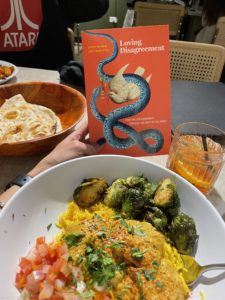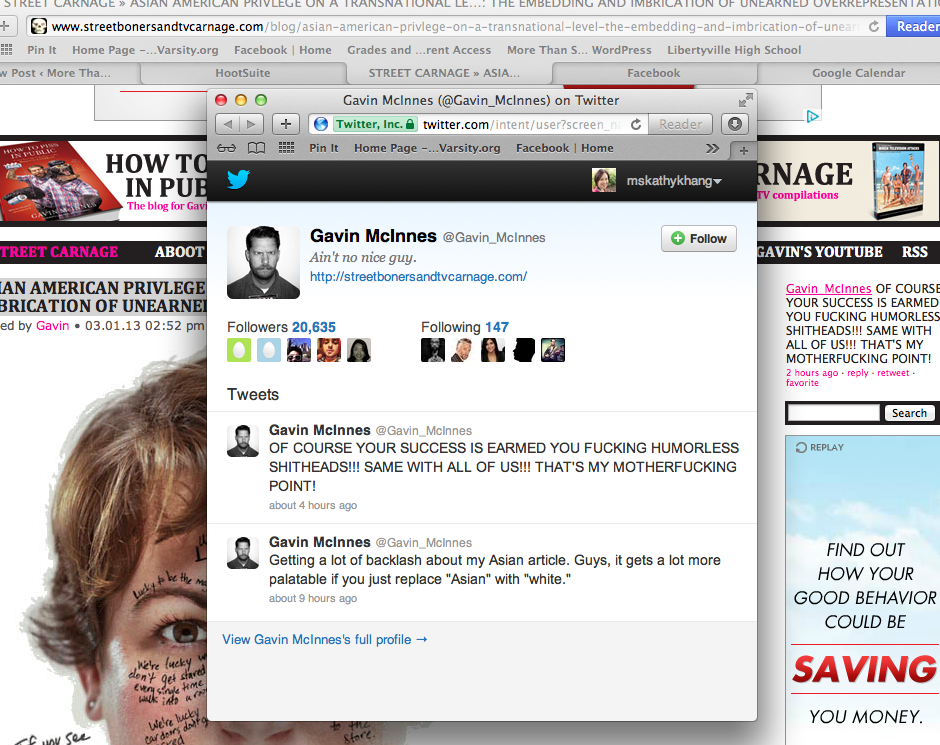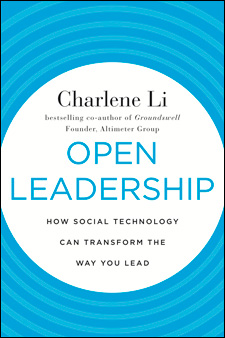My Dear Readers,
I gave birth to a book this week. Loving Disagreement: Fighting For Community Through the Fruit of the Spirit “hit the shelves” Tuesday. (And if you see the book in the wild, as in on an actual shelf in a physical store, please snap a photo and send it to me!!)
It was weird because my friend and podcast co-host Matt Mikalatos birthed the book with me, and we just met IRL in August when we recorded the audiobook baby.
It was weird because the last time I birthed a book it was 2018, and so many people said Raise Your Voice: Why We Stay Silent and How to Speak Up was timely. Apparently things have only gotten worse or didn’t get significantly better because the same is being said about Loving Disagreement: Fighting For Community Through the Fruit of the Spirit.
It was weird because this week has been one of deep divisions, pain, suffering, disagreement, and war – Ukraine and Gaza. I want the celebrate the book, but it’s been a quiet path to hold joy and grief in tension and publicly. Matt and I don’t like that there is an immediate pressing need for our book, but that is not a reason to celebrate.
I’m sure I’ve shared this before, but the work of writing a book finishes long before the physical book arrives. The final edits were turned in months ago, followed by a few quiet weeks before the marketing and publicity push.
The social media landscape has been completely different with each book I’ve authored. More Than Serving Tea was published in 2006 during the time of blogs and when older folks had not yet pushed young people off of Facebook. Twitter had just launched at that point so when Raise Your Voice came out in 2018 publishers were looking at a potential author’s “platform” – the number of followers and maybe the size of the mailing list of your blog. It’s 2023 and Twitter is history but platform is still a thing, even if blogs have now given way to Substack, Medium, and other ways writers can connect with readers. That too has been weird. I am on social media more than the other four members of my family combined, despite the fact that three of those four are in their 20s.
Launch day was really just another day with the privilege of teaching yoga and an inbox that will never hit zero. I took a walk because the sun was out. I’m pretty sure I did some laundry, and I didn’t post anything on my socials. I liked and maybe shared some posts, but for the most part I was organizing my feelings and thoughts around some words about me and my writing (and about my co-author and his writing, but mostly about me), the impact of those words, and discerning what God’s invitation is to me as I enter into a loving disagreement with all of the power dynamics and emotions and assumptions you can imagine.
That has been the weirdest part, My Dear Readers – to sit with my own words and those of my co-author and the Biblical text as we try to model what we just wrote about. The writing is never the hardest part.
But the fruit of the Spirit is love, joy, peace, patience, kindness, goodness, faithfulness, gentleness and self-control. Against such things there is no law. Galatians 5:22-23.




 I grew up believing that taking advantage of the very best education money and hours of studying could get you was the key to the Asian American dream. There’s no doubt a strong education remains key but an Ivy League degree isn’t the only key. The world of social technology – the development and use of – is changing the way leadership and social power works.
I grew up believing that taking advantage of the very best education money and hours of studying could get you was the key to the Asian American dream. There’s no doubt a strong education remains key but an Ivy League degree isn’t the only key. The world of social technology – the development and use of – is changing the way leadership and social power works. Kathy Khang blogs at
Kathy Khang blogs at